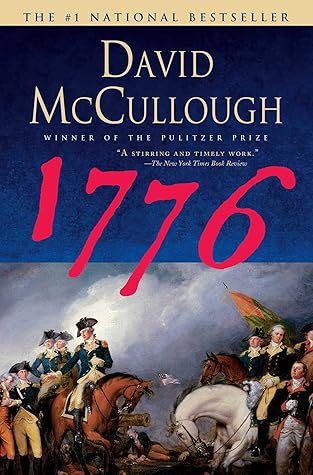More on this book
Community
Kindle Notes & Highlights
Like the Parliament, he had acted thus far in a spirit of moderation, he said, and he was “anxious to prevent, if it had been possible, the effusion of the blood of my subjects, and the calamities which are inseparable from a state of war.” He hoped his people in America would see the light, and recognize “that to be a subject of Great Britain, with all its consequences, is to be the freest member of any civil society in the known world.”
Shall we be told then that this people [the Americans], whose greatness is the work of our hands, and whose insolence arises from our divisions, who have mistaken the lenity of this country for its weakness, and the reluctance to punish, for a want of power to vindicate the violated rights of British subjects—shall we be told that such a people can resist the powerful efforts of this nation?
Independence was not mentioned. Nor had independence been on the minds of those who fought at Bunker Hill or in Washington’s thoughts when he took command of the army. En route to Cambridge from Philadelphia, he had been quite specific in assuring the New York Provincial Congress that “every exertion of my worthy colleagues and myself will be equally extended to the reestablishment of peace and harmony between the mother country and the colonies.”
That such a scheme hatched by a junior officer in his twenties who had had no experience was transmitted so directly to the supreme commander, seriously considered, and acted upon, also marked an important difference between the civilian army of the Americans and that of the British. In an army where nearly everyone was new to the tasks of soldiering and fighting a war, almost anyone’s ideas deserved a hearing.
THE SIEGE had been the stunning success it was proclaimed, and Washington’s performance had been truly exceptional. He had indeed bested Howe and his regulars, and despite insufficient arms and ammunition, insufficient shelter, sickness, inexperienced officers, lack of discipline, clothing, and money. His patience with Congress had been exemplary, and while he had been saved repeatedly by his council of war from his headlong determination to attack, and thus from almost certain catastrophe, he had accepted the judgment of the council with no ill temper or self-serving histrionics.
“When I visited them [the prostitutes] at first I thought nothing could exceed them for impudence and immodesty, but I found the more I was acquainted with them the more they excelled in their brutality.” How any man could desire “intimate connection” with such “creatures” was more than he could comprehend. But so it was, and among officers and soldiers alike, “till the fatal disorder [syphilis] seized them.”
“You can scarcely conceive of the distress and anxiety which she then had,” Knox would write to his brother William. “The city in an uproar, the alarm guns firing, the troops repairing to their posts, and everything in the [height] of bustle. I not at liberty to attend her, as my country cries loudest.”
The Hessians were professionals hired to perform a duty, and this was to be their day to show themselves superior in a profession they took extreme pride in. (During the time he had been held prisoner, Lord Stirling had heard Hessian officers remark that they had never considered it their duty to inquire which of the two sides in the American controversy was right.)
The British blamed the Hessians. (“The Hessians are more infamous and cruel than any,” wrote Ambrose Serle, after hearing reports of British plundering.) The Hessians blamed the British. The Americans blamed both the British and the Hessians, as well as the New Jersey Loyalists, and the British and Hessian commanders seemed no more able to put a stop to such excesses than Washington had been. The stories, amplified as many may have been, were a searing part of a war that seemed only to grow more brutal and destructive.
To Charles Willson Peale, walking among them by the light of the next morning on the Pennsylvania shore, they looked as wretched as any men he had ever seen. One had almost no clothes. “He was in an old dirty blanket jacket, his beard long, and his face so full of sores that he could not clean it.” So “disfigured” was he that Peale failed at first to recognize that the man was his own brother, James Peale, who had been with a Maryland unit as part of the rear guard.


